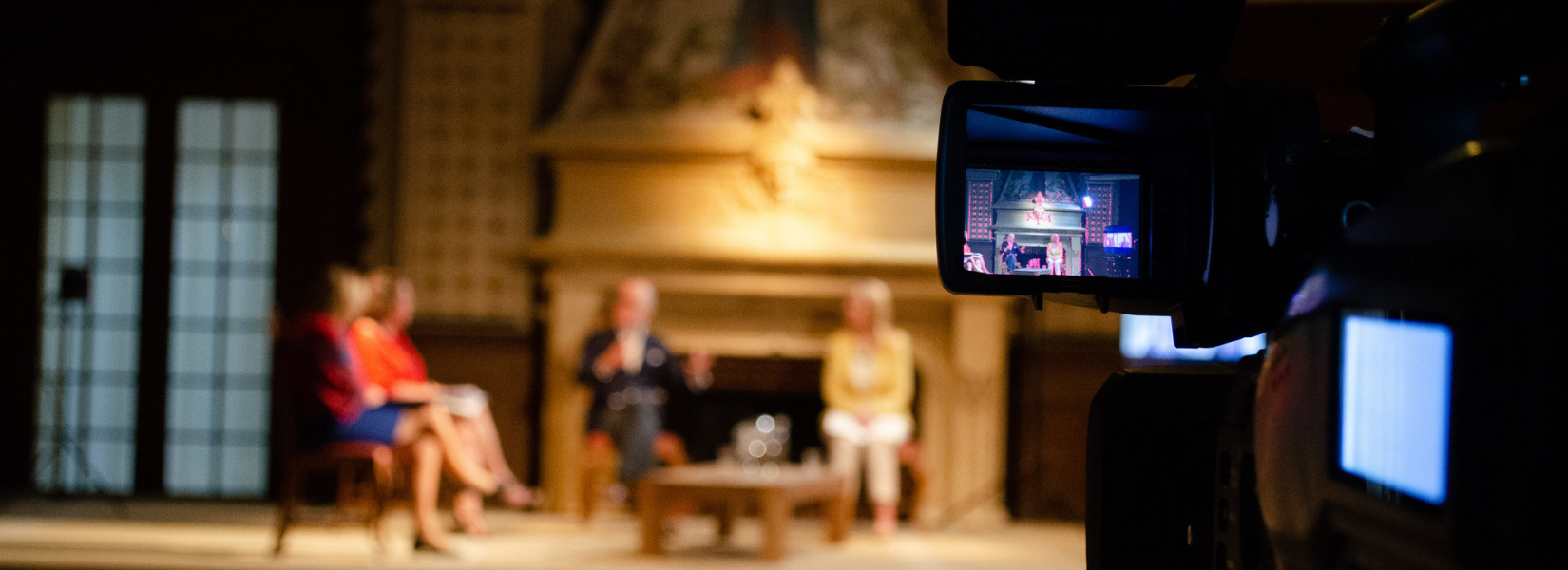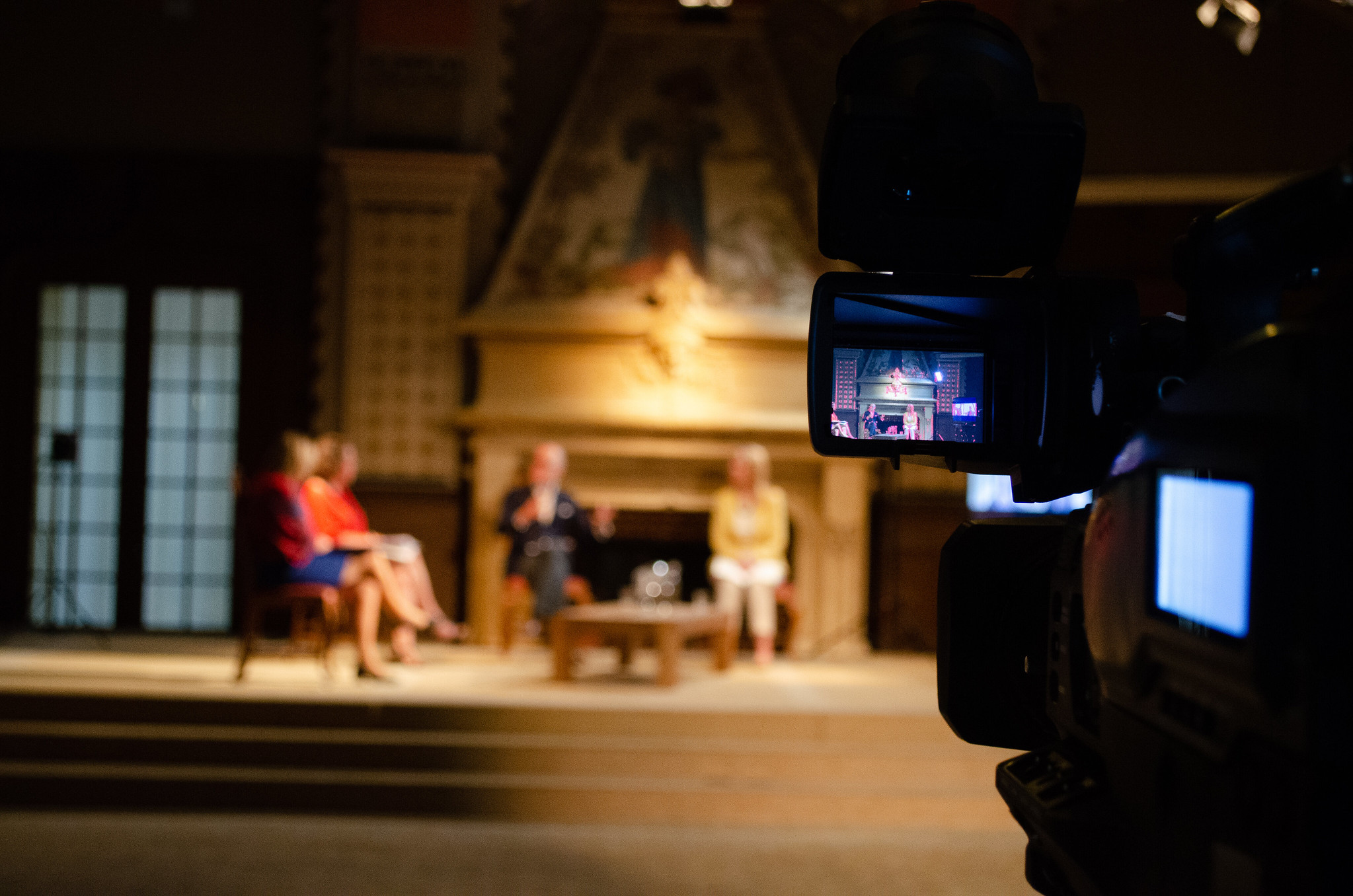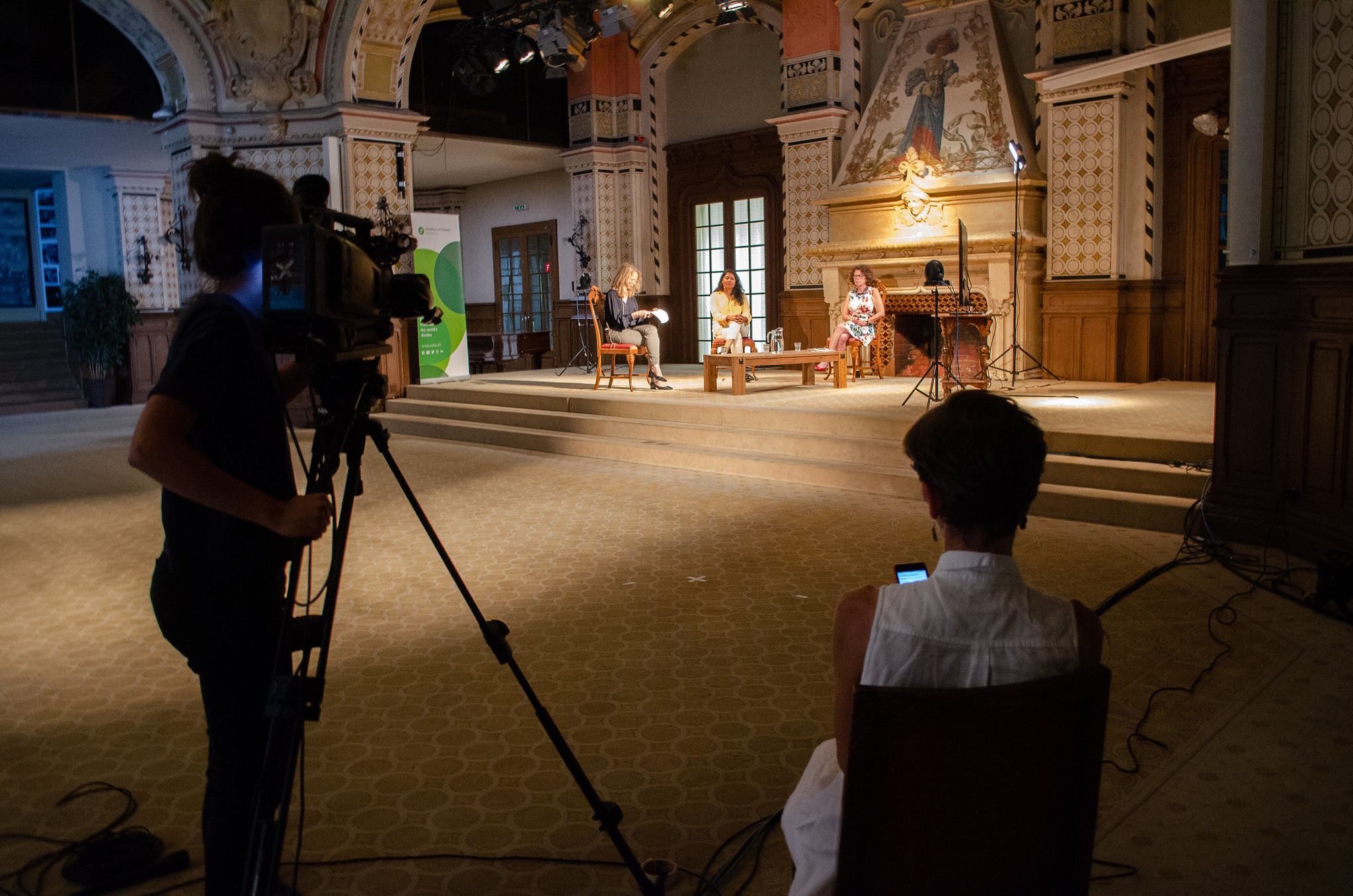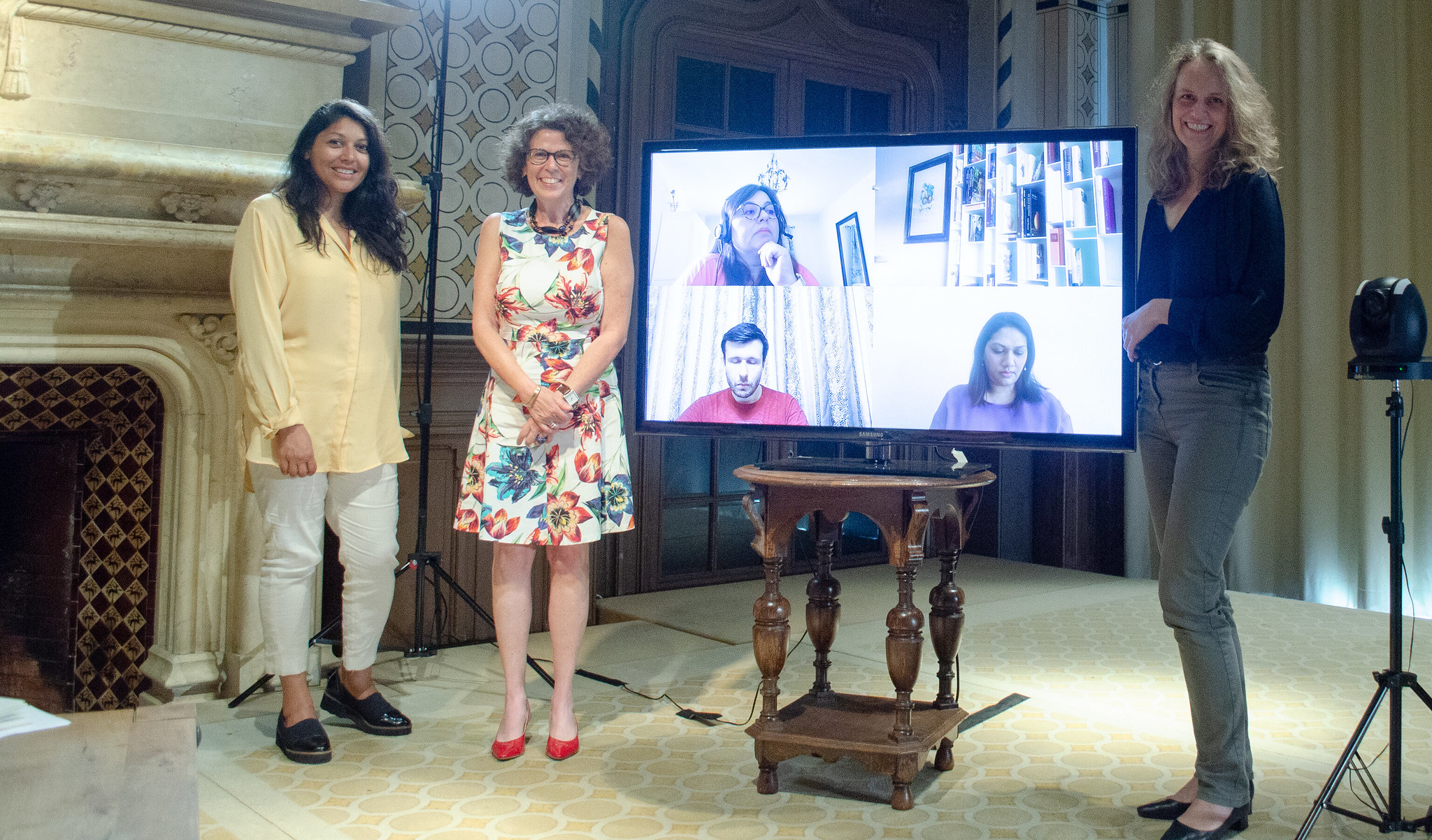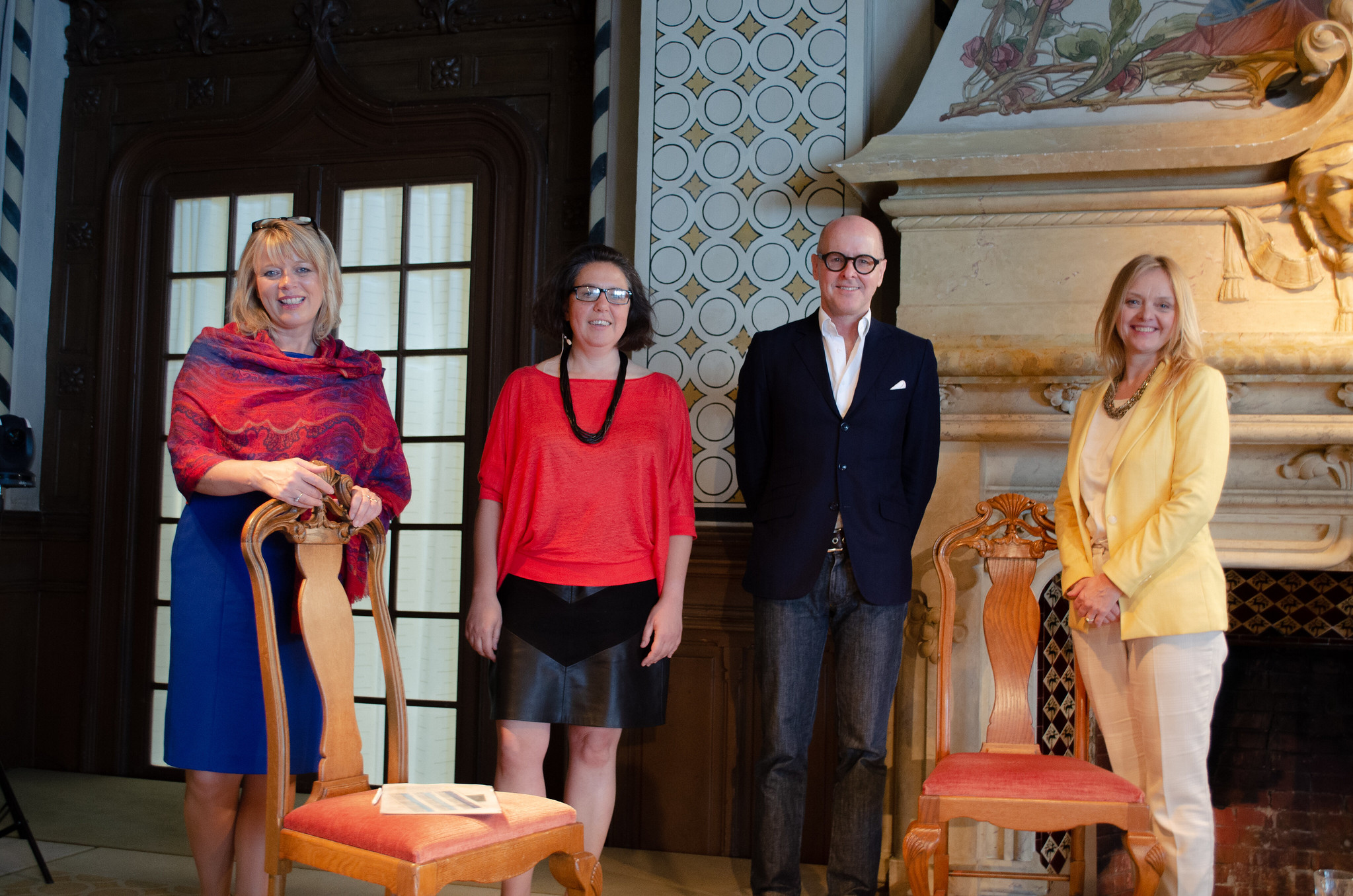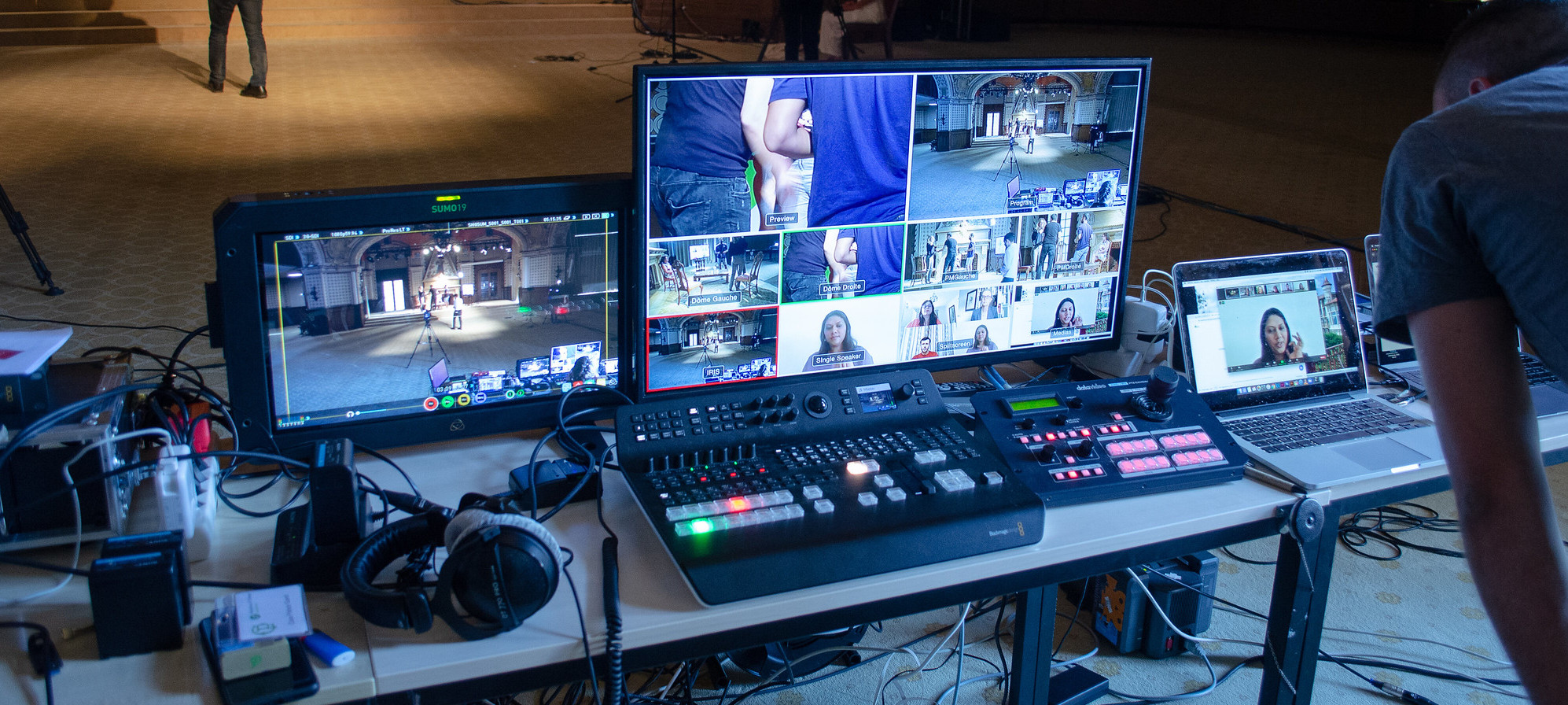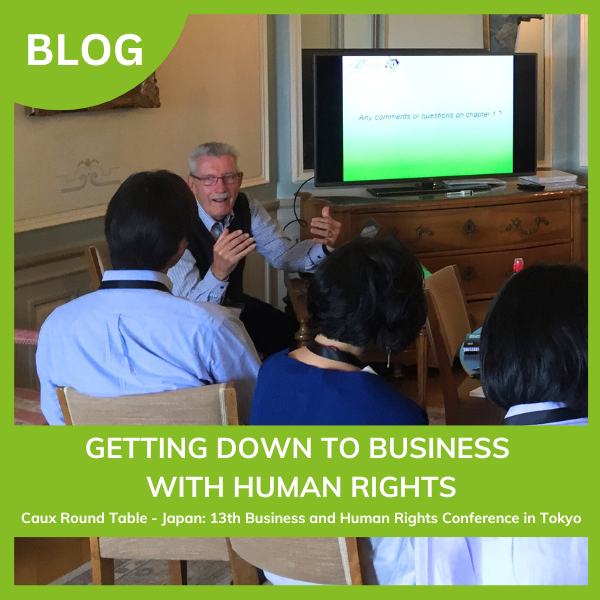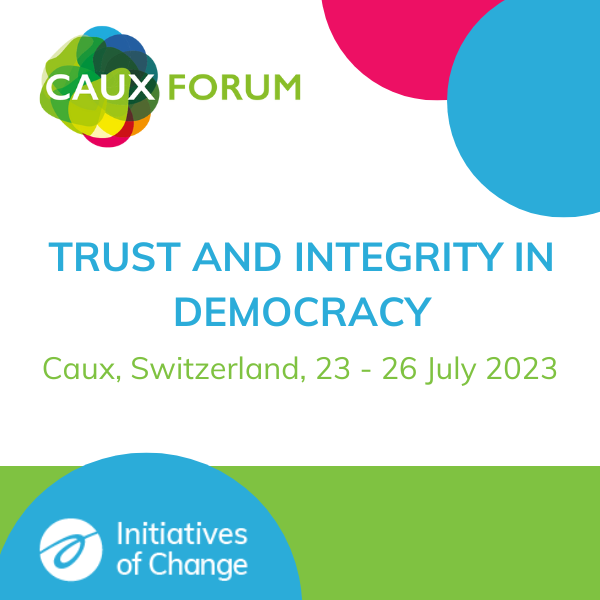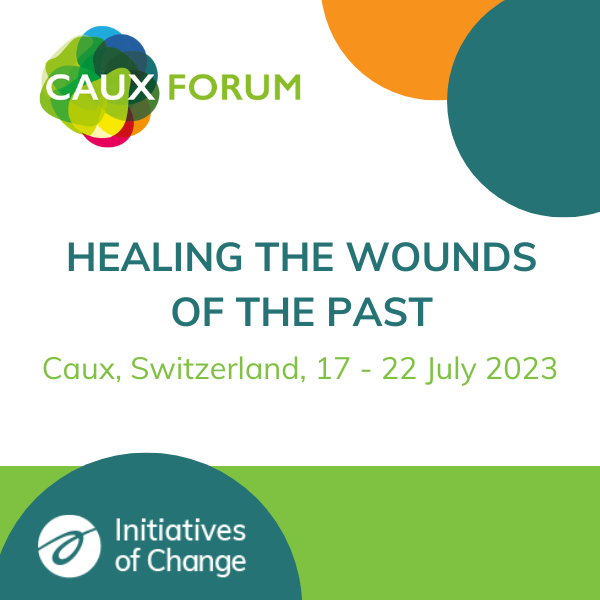Ethical Leadership in Business – Leadership for a resilient economy
25 - 26 June 2020
28/07/2020
The Ethical Leadership in Business conference, on 25 and 26 June 2020, kicked off the first Caux Forum Online. It offered a diversified experience with panels livestreamed from the Caux Palace, networking times and an introspective workshop. Even though participants could not meet on the terrace as they usually do in Caux, they remained very engaged throughout the conference and were inspired by the deep conversations that took place. Monthly conference calls will be organized to sustain this inspiration and support participants as they implement changes in their practice.
Innovation and entrepreneurship in Africa
The first panel of the conference explored the topic of innovation and entrepreneurship in Africa.
Angelica Kiboro, Acting Principal/Registrar at Strathmore Institute in Kenya, who lectures on entrepreneurship, led the three speakers – Dina el-Shenoufy, Chief Investment Officer at Flat6Labs; Peace N Kuteesa, Founder and Chief Operations Officer of Zimba Women; and Darlene Menzies, CEO at Finfind – on an exploration of the difficulties and opportunities arising from the COVID-19 pandemic.
They all agreed that digitalization has become essential. Online businesses and e-commerce are thriving and many entrepreneurs are seizing the opportunity to make the shift. This reveals how important it is for entrepreneurs to be agile in adapting their businesses to new situations, but also to have back-up plans, as Peace Kuteesa pointed out.
Although the pandemic presents huge opportunities for some, many face difficulties with the collapse of supply chains. Communities have had to find ways to rebuild supply chains locally and to accommodate curfews. Darlene Menzies described how the situation is deepening the digital divide in Africa. Those who do not have the technical or financial means to operate the digital shift find themselves marginalized. Angelica Kiboro concluded by stressing that in times of such hardship, it is crucial for entrepreneurs to be reactive and creative, as the effects of their innovations can ripple out and benefit many.
Lifelong learning for a resilient economy
The second panel was livestreamed from the Caux Palace with some speakers also joining via zoom. As the pandemic changes the world, we need constantly to learn new skills. The capacity to remain curious and learn throughout our lives is important in increasing resilience. The panel investigated what we should learn and how.
Annika Hartmann de Meuron, Managing Director of Ethical Leadership in Business, moderated the panel: Danièle Castle, Senior Director, Education and Talent, at Digital Switzerland; Andrea Kuttner, Head of Digital Learning at Credit Suisse; Nazrene Mannie, Executive Director at GAN Global; Naureen Nayyar, technology consultant at H&M Group; Ivan Primachenko, Co-Founder of Prometheus; and Olga Strietska-Ilina, Team Leader, Skills Strategies for Future Labour Markets, at the ILO.
Danièle Castle opened the panel by quoting Einstein: ‘Once you stop learning, you start dying’. Although grim, this emphasized a recurring idea throughout the whole conversation: we all need to learn, at all times. Panelists showed that this does not just mean sitting at a school desk or following an online programme. Rather, there is a great diversity of skills to learn, from professional to interpersonal ones. There are also different ways of learning. Although the online offer has been booming recently, in-person and practical learning will remain essential. Each person can create her own curriculum and learn what she needs in the way that suits her, depending on her situation in life. Life-long learning is really, as Olga Strietska-Ilina put it, life-wide learning.
To make this possible, it is important to create both educational and professional environments that encourage curiosity and learning, and to make sure that no one is left out. Diversity in learning needs to be complemented by inclusivity. This involves ensuring that new technologies are inclusive, and that they aim at cognitive diversity and at bringing our cognitive blindspots to light, as Naureen Nayyar pointed out. Lastly, learning should always remain a pleasure.
Leadership for a moral renewal in the economy
How can we build an economy that is sustainable, resilient and that, most importantly, serves people?
Sarah Schwab, CEO of The Experience Accelerator, moderated an inspiring session with Vivek Asrani, Managing Director of Kaymo Fastener Company; Kristin Engvig, Founder and CEO of Global WIN&WIN Conference; Isabella Phoenix, Senior Manager of HP Global Channel and Co-Founder of Architects of Air, and Guillaume Taylor, Founder of Quadia. Due to technical issues, Brendan Kelly, Global Head of Leadership and Professional Development at Credit Suisse, was unfortunately unable to join the discussion.
All the speakers agreed that our current economy lacks vision. As Guillaume Taylor explained, our aim is profit in and for itself: ‘Form has become substance’. We need to come back to our original intent and realize that the aim is to create value for everyone around the table. As Vivek Asrani put it, we do what we do for and with the people. Only a clear vision can enable us to become clear on our values, said Isabella Phoenix, and to do business which is congruent with our values, we need to know what they are.
A lot of leaders focus only on the outcome and disregard how the profit is produced. But the ‘how’ matters. Vivek Asrani insisted that we need to start rewarding the ‘how’, rather than just the ‘what’. Our economy must undergo a complete shift of mindset. ‘We need to broaden the “what”, deepen the “why”, and adapt the “how”,’ said Guillaume Taylor.
To change the ‘how’, we need authentic and compassionate leaders. Contrary to what some may think, ‘the softer emotions don’t compromise business,’ maintained Vivek Asrani. In fact, compassion and authenticity cultivate trust and collaboration. He gave practical examples of how he embodies those values in his organization. For example, he rejected the opportunity to rent a cheap warehouse, because the sanitary conditions would not have been optimal for his employees. He also instituted paternity leave in his organization when that was almost unheard-of in India.
As Kristin Engvig said, ‘Love is not just a word, it is also a verb.’
Workshop: Leadership in the community
The conference closed with a workshop on leadership in the community, led by Gabriele Segre, Director of the Vittorio Dan Segre Foundation. He led the participants in a reflection on what identity is. We all have several identities which change with time and place. Their unique combination makes each one of us who we are.
Gabriele Segre invited us to celebrate those identities. They do not have to be in conflict. We can recognize that we all share a human identity and live alongside each other, while at the same time cherishing and maintaining the diversity of identities that we all have. Let us cultivate ‘convivenza’. Participants were invited to reflect on this question and to share with each other what that means, practically, in their daily lives.
Although it was a real challenge to move the conference online in such a short span of time, it was a complete success. Participants from all over the world enjoyed deep and meaningful conversations and reflected on what they can do to build a more resilient and inclusive economy.
We look forward to the Ethical Leadership in Business talks that will take place each month and are impatient to discover the fruits of the many seeds that were planted by the conference.
Learn more about Ethical Leadership in Business.
